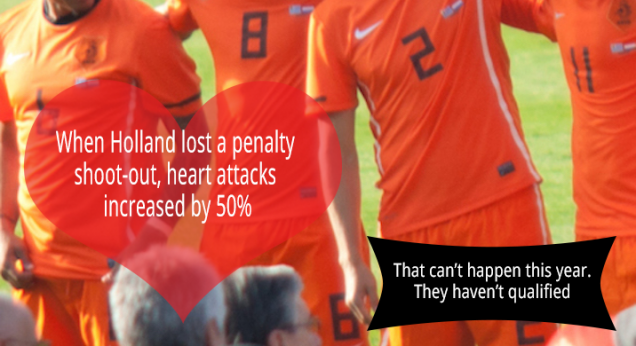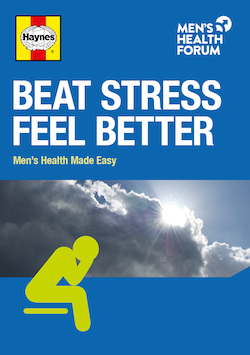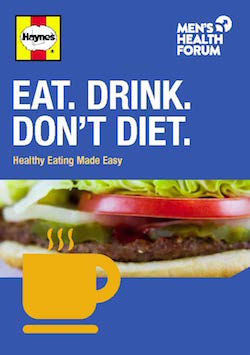Euro 2016 Survival Guide

What are the odds?
Are you going to survive Euro 2106? Let's look at the odds.
At 3-1, host nation France are the favourites. (For Welsh readers, 3-1 is also the odds on Wales beating England in their group match.) In health terms, these are about the same odds as on you getting cancer at some time in your life. (You can tip those odds in your favour by eating well, avoiding alcohol a few days a week, exercising, getting some sleep and not smoking.)
At 4-1, Germany are second favourites – that’s the about the same odds as on a man dying before the age of 65. (Yep, one bloke in five dies before he's old enough to retire.)
England have odds of 9-1 – about the chances of the average American getting type 2 diabetes.
Why mention these? Because we sometimes struggle to understand risk. Thinking of it in terms of football odds might help. The odds on Portugal are 20-1 – about the same as the odds of dying in an accident. (In other words, risk-taking is more er, risky, than you might think.) Croatia are 33-1 – about the same as the odds of dying of diabetes. Poland are 50-1 – about the odds on dying of flu or pneumonia.
So following the tips in this survival guide won't just help you survive the Euros, they'll help you tip the odds in your favour for the future too.
You might be a gambler but don’t gamble on your health. It's not just you who loses - your family and friends do too.
Get off the bench
Unless you're the substitute goalkeeper (or a blanket), warming the bench is not good for you.
A sedentary lifestyle - better known as sitting on your backside a lot - is dangerous. Human beings are designed to run about (although it is rumoured that the Arsenal midfield have a special exemption from the Pope.)
Long periods of physical inactivity - eg. watching three Euro games on the spin - increase your risk of heart disease, diabetes, cancer and obesity.
Australian research even suggests that every daily hour spent in front of the TV increases the risk of heart disease by 18%.
Get off the couch and go for a walk at half- and full-time. (This will also enable you to avoid those shocking ads with Ray Winstone.)
Make smarter substitutions
Top managers live or die on the quality of their substitutions. Make some smart ones of your own when choosing the football takeaway.
Pizza
Italy are in the group of death with Belgium, Ireland and Sweden. Make sure you're still alive by the end of it by choosing your pizza wisely. Opt for veggie toppings. (Five a day is not just the number of training sessions prescribed by Mauricio Pochettino.) Try a pizza without cheese and drop the garlic bread - pick Bruschetta instead. (That’s toasted ciabatta with tomatoes and herbs not Italy’s left back.)
Kebab
Hapless former champions Greece finished bottom of the qualifying group topped by Northern Ireland. So the dangers of too many kebabs are pretty clear. Choose shish (the skewered meat) instead of doner (the reconstituted stuff) with brown pitta and salad.
Burgers
Burgers are like a manager's final instructions to the team – best kept simple. Have a grilled burger with salad, tomato and a little relish in a wholemeal bun. Avoid the creamy dressings, cheese, bacon and anything battered or breaded.
Make your own
You can easily make what they serve outside Portuguese footie grounds at home. Marinade thinly sliced beef or pork as long as possible in white pepper, white wine and garlic. Pan fry in a splash of oil for a minute or two and put between two slices of bread. Cristiano Ronaldo won’t eat anything else after a long hard 90 minutes moaning at his less talented team-mates.
Order food before you start drinking.
This reduces the risk of you ordering the double deep-fried fat ball with cream and sugar. (The same applies to betting by the way. Just one drink can cloud your judgement leading to a bet on England.)
Pace yourself
Spain lost their first game at the 2010 World Cup but still won the tournament.
‘It’s a marathon not a sprint’ (© all football managers) so follow our drinking rules and you won’t make too many misplaced passes or lose your shape in the last third:
- don’t drink on an empty stomach
- have the odd soft drink or better still, glass of water
- generally a clearer liquid means less of a hangover
- drink water before bed and in the morning
- give your liver a few days off (at least 48 hours)
- don’t drive and know how you’re getting home
- don’t mix drinks (and that includes so called energy drinks)
The NHS advise men not to drink more than 14 units of alcohol a week. (Yes, that is less than it used to be so choose wisely! England's manager Roy Hodgson has five strikers but quality is far more important that quantity - the same applies to your Euro tipple.)
Get some sleep
Sitting in front of a screen all day can make it difficult to get to sleep later on. But loss of sleep - even a few hours for a few days - affects mood and judgement.
A short nap can improve your mood enormously (perhaps someone could mention it to Mark Lawrenson) and give you a boost without affecting your night’s sleep. (It can also help your memory enabling you to remember the excuse you gave your boss for nipping off early to catch the 5pm kick-off.)
Nap for 20-30 minutes (about the same amount of time it usually takes the opposition to realise that England are not as good as they thought.)
How to deal with the inevitable
The best preparation for supporting England at any football tournament is a lifetime supporting Tottenham Hotspur. (The side that this season came third in a two-horse race.) But if you haven’t had the benefit of this thorough apprenticeship in humiliation, here are some tips to beat depression if and when your team gets knocked out:
- take some exercise
- sing (as if you’re winning - ‘always look on the bright side of life’ perhaps. Singing helps get you breathing properly and boosts mood.)
- have sex (“I haven't felt that good since Archie Gemmill scored against Holland in 1978” © Trainspotting)
- do something you enjoy (eg. watch cricket or tennis)
- do something different (eg. fill in your wall chart with a different coloured pen)
- be mindful - enjoy the emotions of the journey, let the sensations of defeat flood over you like an English summer downpour, safe in the knowledge that with each moment that passes you’re feeling better and will continue to feel better until the World Cup in two years time.
- talk about it with a mate - the best tip for dealing with any problem
- look forward to the next game
It could be worse. There are now 24 nations in the European Championship but Holland, the home of Johan Cruyff and total football, still couldn't qualify. (And they claim it was the smoking that killed the great man.)
How to survive a penalty shoot-out
The day England lost to Argentina on penalties in 1998, male hospital admissions for heart attack increased by 25%.
On the day Holland were knocked out of Euro 96 on penalties by France, male heart attacks increased by 50%. In that game, the Netherlands missed just one penalty. Imagine the carnage after the semi-final of Euro 2000 when they missed five penalties against Italy. They were also knocked out on penalties at the last World Cup and all told have lost four out of the five shootouts they've appeared in in major tournaments. Perhaps the reason they didn't quality this time was that there just weren't enough people still alive to select from.
Here’s the thing: getting angry about losing a penalty shoot-out is like getting angry at the rain for raining, the birds for singing or a defender for clogging Gareth Bale. It’s going to happen. Even Germany only have win-percentage of 71%. (England's is 17%!)
- Don’t drink or eat too much,
- don’t hold your breath and
- just assume the players will miss and you'll lose.
Then be pleasantly surprised if they don’t. It's a glass half-full, glass half-empty thing.
| The Men’s Health Forum is committed to fully participating in NHS England’s Information Standard Scheme for health and social care information. This is not health information as such but a bit of football fun. Although it is NOT updated regurlarly in line with the Information Standard, references for all the statistics and health and medical claims at the time of writing are available below. |
Date published
07/06/16
Date of last review
07/06/16
Date of next review
21/06/18
References
|
The Men’s Health Forum need your support It’s tough for men to ask for help but if you don’t ask when you need it, things generally only get worse. So we’re asking. In the UK, one man in five dies before the age of 65. If we had health policies and services that better reflected the needs of the whole population, it might not be like that. But it is. Policies and services and indeed men have been like this for a long time and they don’t change overnight just because we want them to. It’s true that the UK’s men don’t have it bad compared to some other groups. We’re not asking you to ‘feel sorry’ for men or put them first. We’re talking here about something more complicated, something that falls outside the traditional charity fund-raising model of ‘doing something for those less fortunate than ourselves’. That model raises money but it seldom changes much. We’re talking about changing the way we look at the world. There is nothing inevitable about premature male death. Services accessible to all, a population better informed. These would benefit everyone - rich and poor, young and old, male and female - and that’s what we’re campaigning for. We’re not asking you to look at images of pity, we’re just asking you to look around at the society you live in, at the men you know and at the families with sons, fathers and grandads missing. Here’s our fund-raising page - please chip in if you can. |




